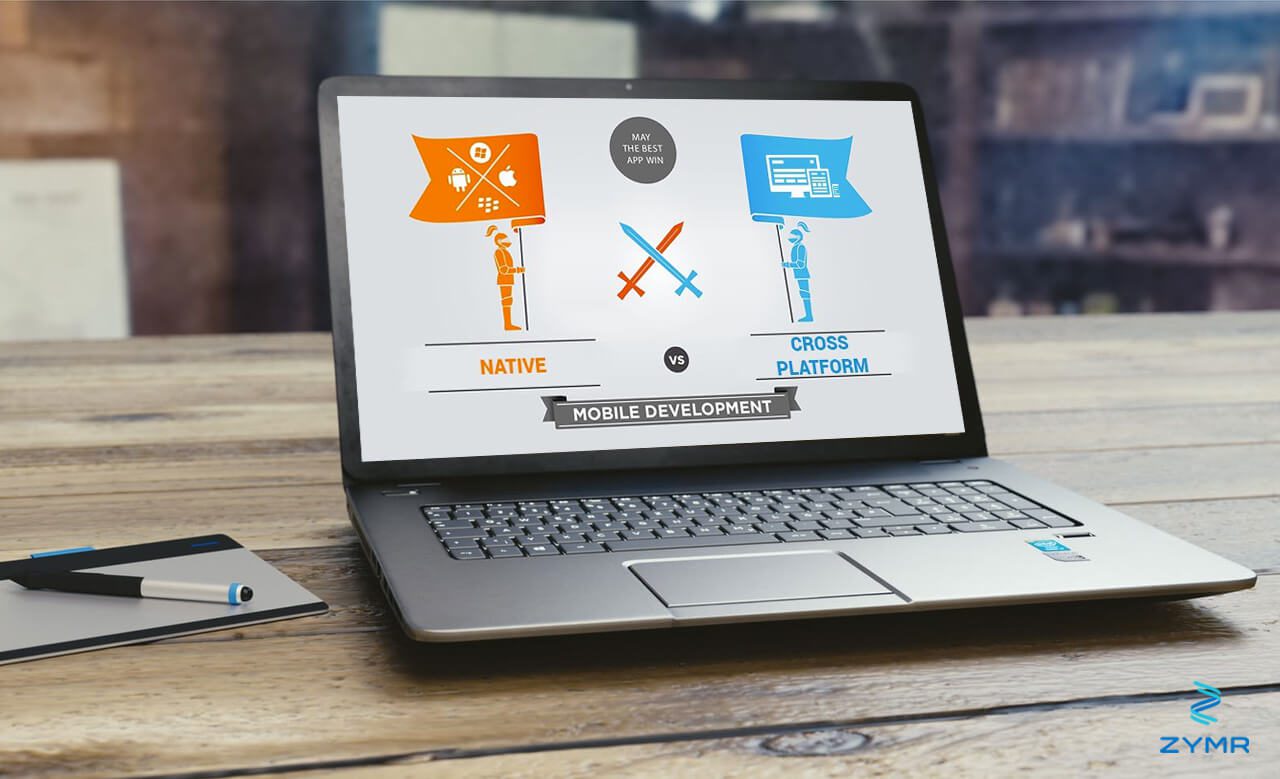Software technologies are constantly evolving. This allows engineers to create mobile solutions that work across all devices and allow them to deliver high-quality mobile solutions. While native applications were once the best choice, it was still possible to use programming languages like Objective-C and Java to create them. However, cross-platform tools now exist that allow engineers to make native-like experiences.
It is crucial to decide between cross-platform and native app development before you start building software products to solve business problems. Companies can increase user engagement, improve performance and reduce costs by defining the best way to do the job. This article will discuss the difference between cross platform mobile app development services and native app development services. It will help you decide which approach is best for your needs.
Native vs. Cross-platform app development: An overview
The process of iOS and Android app development services involves creating unique user experiences and engaging customers with responsive features. The debate over mobile app development is still ongoing. Let’s start with a brief introduction to cross-platform and native apps.
Native app development
A native mobile app is designed for one operating system (OS). Software engineers create a codebase that runs on one platform. They use programming languages like Swift and Objective-C (iOS Development) or Java (Android Development). Two codebases are required to make a program that runs on iOS and Android. This requires hiring two people with different skill sets.
Native applications provide a seamless user experience and high performance. Native app development can be more expensive because teams must duplicate the same functionality using different technologies.
Cross-Platform App Development
Cross-platform development refers to creating apps that work on multiple platforms. React Native, Xamarin and Flutter are tools that allow you to create apps that can be used on both Android or iOS. This is why cross platform mobile app development company services are in high demand.
Cross-platform development can save time and money, but it could lead to quality compromises. It can be very challenging for one to develop an application that works on all platforms that can enhance its reach and boost returns. Additionally, the app will require an extra abstraction layer in order to run properly. This results in lower performance.
Native App Development: Pros And Cons
Pros
- Better Store Support: Native apps are easier to publish and more likely to rank higher in the app store. This is because they deliver better performance and speed.
- Broad Functionality: All APIs and tools that you get with the respective platform will be accessible to you. The programmers can work with the app in any way they like.
- High Performance and Great UX: This is due to the direct interaction between code and the underlying resource. Native apps have a higher UX, which is often synonymous with the platform.
- Apps that are built for native environments tend to have greater scalability. This is due to the resources management flexibility and the wide range of tools available.
Cons
- Costs rise: Native development can be quite costly. This approach requires the collaboration of iOS and Android developers. More employees means higher costs.
- It will take longer to develop the app. This is especially true if you plan to use the program on more than one platform.
- Support is expensive: Launching an application is just the beginning of its lifecycle. You’ll need to maintain the app, update it, fix bugs, and much more. It can be difficult to maintain native mobile apps.
Cross Platform App Development: Pros And Cons
Pros
- A cross-platform app can help you save money. A single application that can work on multiple platforms saves money and maximizes team effort.
- You can develop apps that run on multiple platforms in a shorter time. This reduces the size of the development team.
- One Code Base: The app is created using a single, cross-platform development tool. This creates only one code base.
- A smaller team: Instead of two teams for each platform, you will only need one team to create an app that is cross-platform.
- You can launch iOS and Android simultaneously: The cross-platform app is designed to target multiple platforms. It will be available in all of these markets at once. You will see an increase in potential users and more chances for them downloading your program.
- Easy improvement: Your mobile service will be easier to update and improve. You won’t need to do double work and QA will take much less time.
- Identical UX/UI: Maintaining identical UI/UX across native mobile apps can be a difficult task, even though two teams are working on it. Cross-platform apps can use a single code base to maintain the same user interface across all platforms.
- The future looks bright: Cross-platform mobile developers have new frameworks available to aid them in their work. These programs look and behave just like native apps, which is why cross-platform app development is on the rise.
Cons
- Cross-platform technology is less flexible: Cross-platform technologies may not offer the same level of flexibility as native mobile apps when you need to create a new feature.
- Native features of your device: Cross-platform applications don’t have full access to all features of the platform. But, integration is not always necessary. It depends on the tasks you have.
- Hybrid complexity: This is for those who already have an iOS/Android native app and wish to rebuild it using React Native. It will require a substantial initial investment.
- Complex interactions with Stores: Authorizing cross-platform applications in the App Store or Google Play can take a lot of effort. Each update must be approved before it can become available.
- Low Performance for some Apps: Some applications may have slower performance, especially if they heavily rely on data.
Wrap up
Both options have strengths and weaknesses. You should assess your business needs and identify the most important software requirements. Native application development is the best option if you are looking to create a mobile solution that can be used by millions of people and deliver an exceptional customer experience.
Cross-platform apps are a great option if an organization wants to develop a product that employees can use to solve internal problems. This means that if you are looking for custom iOS app development services or Android app, then cross platform has to be the way to go. Native apps still offer the best user experience and performance. Although they are more expensive, you will be happier with the lower defect rates and improved visuals. While cross-platform apps can be built quickly and are simple to use, it will take more effort to provide the same user experience on each platform.
Are you still unsure whether to choose native or cross-platform development. The professional team of developers will help you with complete guidance.
Author Bio
Scarlett works with the editorial team of A3logics, a leading company offering IT Consulting Services. Exploring the latest technologies, reading about them, and writing her views have always been her passion. She seeks new opportunities to express her opinions, explore technological advancements, and document the details. You can always find her enjoying books or articles about varied topics or jotting down her ideas in a notebook.



































